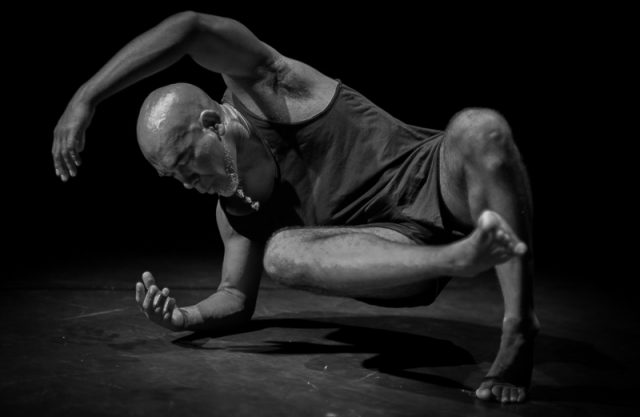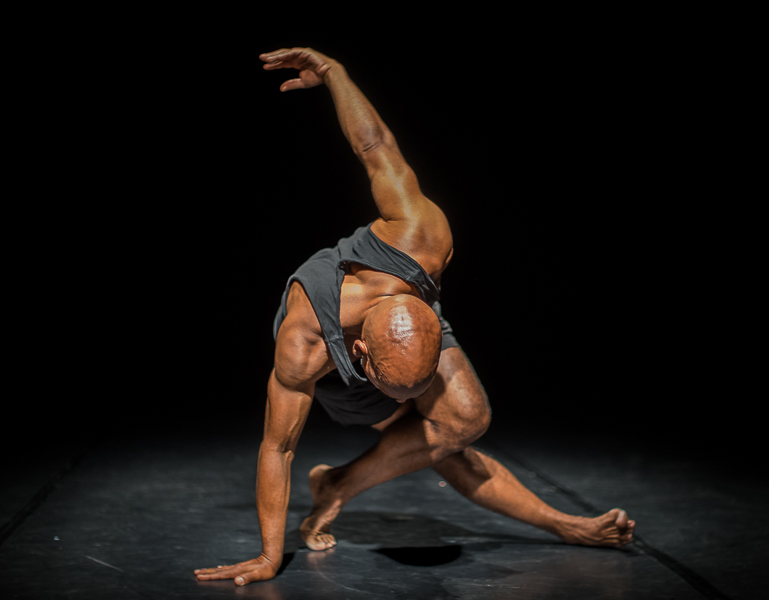
For the English versione, please, scroll down.
BERLINO – Per avere un quadro sempre più esaustivo circa le complicazioni derivanti dallo stato di pandemia che si ripercuotono sulla danza, ho parlato con Chaim Gebber, coreografo, performer, insegnante, creatore del Conscious Body System (sistema mirato a migliorare la funzionalità del movimento) e direttore artistico della Chaim Gebber-Open Scene, compagnia fondata nel 2014 a Berlino insieme a Roberta Pupotto.
Chaim, cos’è accaduto alla tua attività professionale quando è entrato in vigore il lockdown qui a Berlino, lo scorso marzo?
Come prima cosa sono state subito sospese le classi che do regolarmente alla Tanzfabrick. Per problemi di distanziamento abbiamo anche dovuto annullare il workshop che avevamo in programma con la compagnia. Come se ciò non bastasse, sono stati rinviati due festival in programma a Shangai, a cui avremmo dovuto partecipare proprio a marzo, ed è stata posticipata per ben tre volte la premiere di M.O.S.T., il nuovo lavoro della Chaim Gebber-Open Scene. Se sarà possibile ci esibiremo al Pfefferberg Theater a marzo 2021.
Come hai reagito a tutte queste difficoltà, hai organizzato corsi e lezioni online?
No, quella di insegnare online, non è mai stata una possibilità che ho preso in considerazione. Il mio metodo di insegnamento si basa sul principio per cui ognuno ha tempi e processi di apprendimento diversi. Nelle mie classi, quindi, cerco di lavorare individualmente con ogni alunno per consentirgli di assimilare le informazioni senza dover preoccuparsi di essere a tempo con la musica o in sincro con gli altri.
L’unica iniziativa in tal senso è stata inviare degli esercizi agli alunni che solitamente mi seguono e che sentivano mancanza delle mie classi. Ciò è stato importante per mantenere un contatto con loro e per aiutarli ad affrontare meglio questa difficile situazione.
Se la pandemia dovesse durare ancora a lungo, pensi di ‘convertirti’ al web?
No, non credo. Se anche dovesse durare molto, non cambierò il mio modo di lavorare. Preferisco restare fedele a me stesso. Del resto non ho mai considerato l’arte come un modo per arricchirsi, Quello che faccio, l’atto artistico, rappresenta semplicemente chi sono.
Nel caso in cui le restrizioni durassero ancora a lungo, approfitterei della ‘solitudine’ per andare sempre più a fondo nel mio processo di trascendenza. Se c’è un aspetto positivo in tutta questa situazione è proprio la possibilità di entrare in contatto con sé stessi.
Da un punto di vista economico, come hai fatto a superare il primo lockdown e come pensi di ‘sopravvivere’ a questa nuova chiusura che riguarda teatri e scuole di danza?
A marzo, come tutti i liberi professionisti, ho ricevuto il sostegno stanziato per i freelancer a cui hanno avuto accesso anche i membri della mia compagnia. Il problema, però è che, nonostante qui in Germania si faccia per la cultura molto più di quanto non sia possibile fare nella maggior parte degli altri Paesi, la danza resta sempre la più bistrattata tra le arti.
La difficoltà più grande, infatti, è che non è stato previsto un piano per mettere in condizione tutti i danzatori senza contratto di proseguire – in qualche forma – la loro attività. Nel mio caso, per esempio, essendo stati cancellati tutti i festival e le serate che avevamo in programma al teatro, è diventato impossibile pagare i miei danzatori per progetti che non si sa quando andranno in scena.
Per far fronte a questa situazione, stiamo cercando tutte le applicazioni che prevedono finanziamenti per gli artisti.
Pensi che passato questo periodo si possa tornare alla ‘normalità’?
Tra le cose che la pandemia ci ha insegnato c’è che la ‘normalità’ a cui siamo abituati non è la migliore possibile, quindi, quando questo momento di emergenza sarà passato, non solo dovremo cambiare la nostra società, ma valorizzare tutto ciò che da questa situazione è emerso essere più importante.
A parte la sanità, c’è la cultura, non solo quella scolastica, ma quella che ha consentito alla maggior parte delle persone di trascorrere un po’ meglio questo periodo. Arte, cinema, libri, musica e intrattenimento non devono essere più considerati di secondaria importanza. In ogni caso, credo che quando sarà tutto passato, ognuno di noi avrà bisogno di tempo.
Sono completamente d’accordo con te!
Chaim, grazie mille per la piacevole conversazione e incrociamo le dita perché la tua compagnia possa tornare presto a esibirsi.

To get an increasingly comprehensive picture of the complications, deriving from the pandemic state, which are afflicting the dance world, I had a talk with Chaim Gebber, choreographer, performer, teacher, creator of the Conscious Body System (a system based on functional movement) and artistic director of Chaim Gebber-Open Scene, a dance company founded in 2014 in Berlin, with Roberta Pupotto.
Chaim, what happened to your professional activity when, here in Berlin, there was the lockdown last March?
First of all, the classes that I regularly give to Tanzfabrik were immediately suspended. Due to problems of distancing I also had to cancel the workshop we had planned with the company. Moreover, two festivals in Shanghai, to which we should have participated in March, were postponed and the premiere of M.O.S.T., the new piece by Chaim Gebber-Open Scene, has been postponed already three times. If possible we will perform it at the Pfefferberg Theater in March 2021.
How did you react to all these difficulties, did you organize courses and dance classes online?
No, teaching online has never been a possibility that I have considered. My teaching method is based on the principle that everyone has different learning times and processes, so in my classes I try to work individually with each pupil to allow them to assimilate information without having to worry about being in time with the music or in sync with the others. What I did was to send exercises to the students who usually follow me and who missed my classes. This was important for keeping in contact and helping them to cope better with this difficult situation.
If the pandemic will last for a long time, do you think you’d change your idea about web lessons?
No I do not think so. Even if it lasts a long time, I won’t change the way I work. I prefer to stay true to myself. After all, I have never considered art as a way of making money. What I do, the artistic act, simply represents who I am. If the restrictions persist longer, I would take advantage of the ‘solitude’ to go deeper and deeper into my transcendent process. If there is a positive aspect in this whole situation, it’s precisely the possibility of getting in touch with the inner part of ourselves.
From an economic point of view, how did you manage to overcome the first lockdown and how do you think you to survive this new closure that involve theaters and dance schools?
In March, like all self employed professionals, I received the support for freelancers to which the members of my company also had access too. The problem, however, is that, although here in Germany much more is done for culture than what is possible to do in other countries, dance is still the most mistreated art. The greatest difficulty, in fact, is that no plan has been foreseen to enable all dancers without a contract to continue – in some form – their activity. In my case, for example, since all the festivals and shows we had to performe at the theater have been canceled, it has become impossible to pay my dancers for projects that we don’t know when will be on. To cope with this situation, we are trying to find all applications that can provide funding for artists.
Do you think that after this period we can return to ‘normality’?
Among the things that the pandemic has taught us is that the ‘normality’ we are used to is not the best possible, therefore, when this moment of emergency has passed, we will not only have to change our society, but value everything that from this situation it emerged to be more important. Apart from health care, there is culture, not just the school one, but the one that has allowed most people to spend this period a little better. Art, cinema, books, music and entertainment should no longer be considered of secondary importance. In any case, I believe that when all will be over, each of us will need time before starting to live a new normality.
I completely agree with you!














































